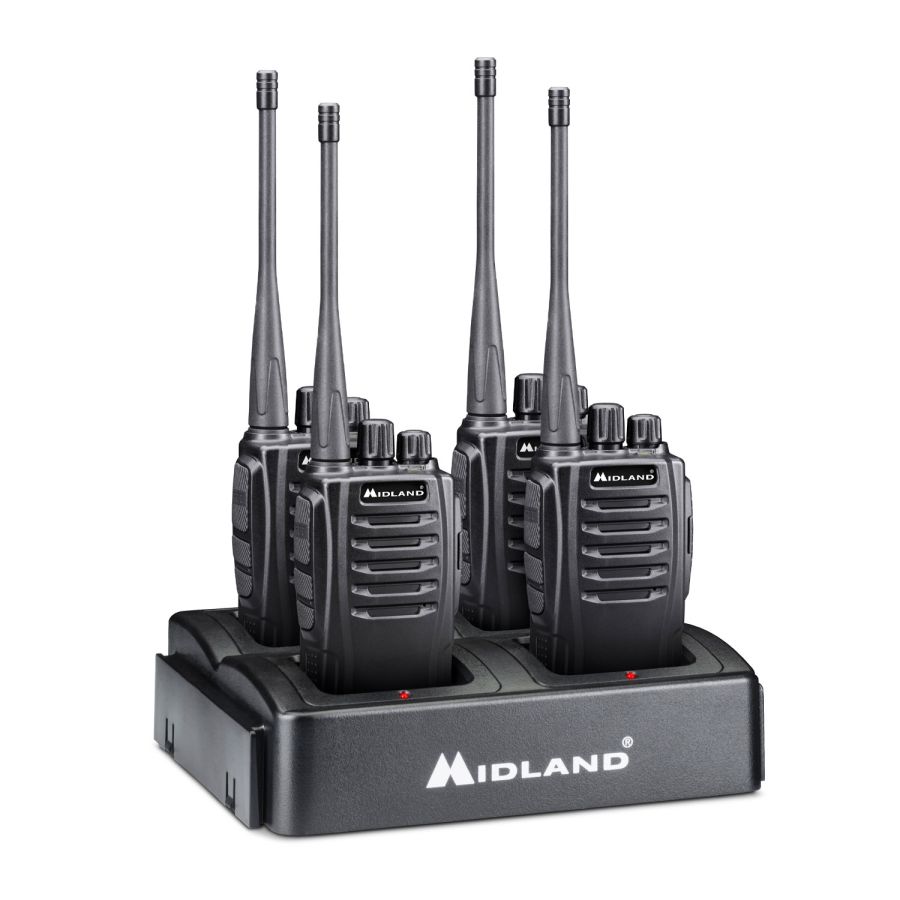In today's fast-paced and interconnected world, effective communication is the cornerstone of success in various industries. One technology that has revolutionized communication is radio communication. From emergency services to aviation, logistics to broadcasting, radio communication plays a vital role in ensuring seamless and reliable information exchange. In this article, we will delve into the reasons why radio communication is widely used and explore its significance across different sectors.
- Reliable and Wide Coverage:
One of the primary reasons for the widespread use of radio communication is its ability to provide reliable communication over long distances. Unlike other forms of communication, such as cellular networks, radio waves can travel through obstacles and reach remote areas, making it an ideal choice for industries operating in challenging terrains or areas with limited infrastructure. This reliability ensures that critical information can be transmitted even in the most demanding situations. - Instantaneous and Real-time Communication:
In industries where time is of the essence, such as emergency services or military operations, radio communication offers instantaneous and real-time communication. With just a push of a button, users can transmit and receive information instantly, enabling quick decision-making and coordination. This speed and efficiency are crucial in situations where every second counts, potentially saving lives and minimizing risks. - Enhanced Safety and Security:
Radio communication plays a crucial role in ensuring safety and security across various sectors. In emergency services, firefighters, police officers, and paramedics rely on radio communication to coordinate their efforts, share critical information, and request assistance. Similarly, in industries such as aviation and maritime, radio communication is essential for maintaining contact with control towers and ensuring the safe movement of aircraft and vessels. The reliability and dedicated frequency bands of radio communication contribute to its resilience against interference, making it a secure and trusted means of communication. - Cost-effective and Scalable:
Compared to other communication technologies, radio communication offers a cost-effective solution, particularly in industries that require communication across large areas or multiple locations. Setting up a radio communication network requires minimal infrastructure and can be easily scaled to accommodate growing needs. This scalability makes it an attractive choice for industries with dynamic operational requirements, such as logistics and transportation. - Versatility and Adaptability:
Radio communication is a versatile technology that can be customized to meet the specific needs of different industries. From handheld radios for on-the-ground communication to sophisticated systems for long-range communication, radio technology can be tailored to suit various environments and operational requirements. Additionally, advancements in digital radio technology have further enhanced the capabilities of radio communication, offering features such as encryption, data transmission, and integration with other communication systems.
Conclusion:
In conclusion, radio communication has become an indispensable tool across a wide range of industries due to its reliability, instantaneous communication, enhanced safety, cost-effectiveness, and adaptability. From enabling effective coordination in emergency situations to facilitating seamless logistics operations, radio communication continues to play a vital role in keeping the world connected. As technology continues to evolve, radio communication will undoubtedly remain a cornerstone of modern communication systems, ensuring efficient and secure information exchange in the years to come.

